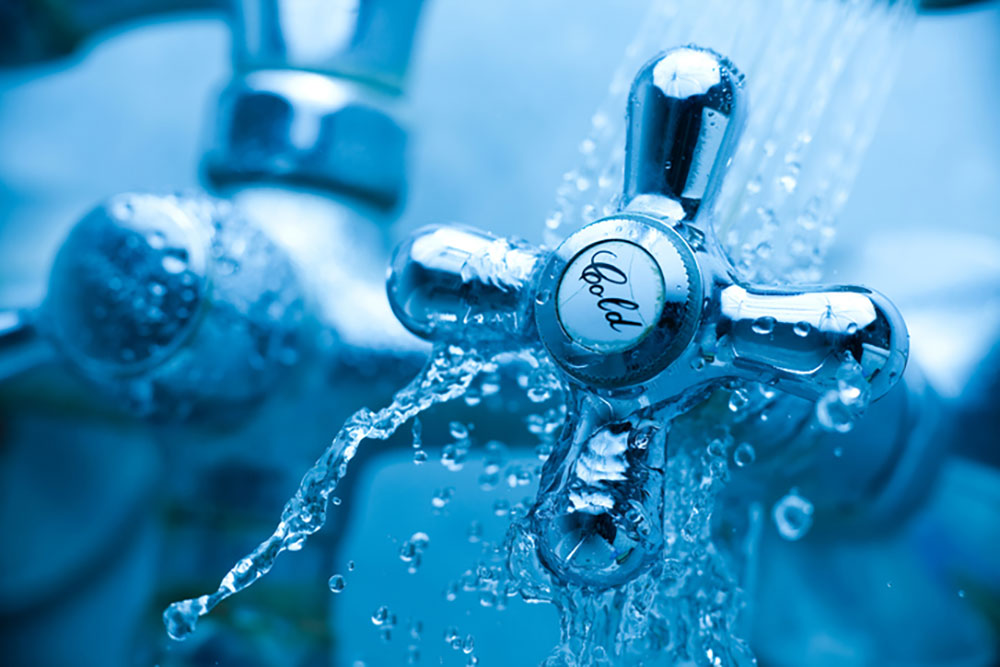
iStock
By Mary Carpenter
Since Mary Carpenter wrote a MyLittleBird post about the medical benefits of water in 2014, not much has changed —but even non-swimmers are touting the benefits of what’s called the diving response or reflex.
PUBLIC speaking can be daunting—especially when it dries the mouth and blocks the breath. While most public speaking strategies emphasize preparation and more preparation, many rely on beta-blocker medications like propranolol, which relax the heart and blood vessels to lower blood pressure but often come with side effects like fatigue.
Dunking the face in icy water or simply covering it with a cold wet towel —especially on the forehead and the area around the nose—can activate the diving response or reflex (DR), which has many of the same benefits, minus the side effects of drugs. For the diving response, three independent reflexes combine to lower respiration, heart rate and arterial blood pressure.
“The dramatic bradycardia seen with underwater submersion…is mediated via the vagus nerve,” write Michael Panneton and Qi Gan at the St. Louis School of Medicine in Missouri. “The DR is thought to conserve vital oxygen stores and thus maintain life by directing perfusion to the two organs most essential for life—the heart and the brain.”
Stimulating the vagus nerve—which meanders down the body from the brainstem toward the chest and abdomen—engages the parasympathetic nervous system in charge of the body’s involuntary functions such as digestion. The vagus nerve can also direct the “relaxation response”—notably by way of different breathing techniques, including mindful breathing.
In the DR, vagal activation begins at the facial trigeminal nerve, located in the forehead and around the nose—which responds to splashes of cold water or to frozen vegetables and plastic bags of ice touching these areas. But the best method involves holding the breath, then plunging the face into icy water for 30 seconds, followed by taking a break and repeating the dunk.
The DR may be an evolutionary adaptation in the transition between fish and land-living animals, seen in fossil evidence from about 375 million years ago, writes Neil Shubin in Your Inner Fish. “What we saw gradually emerge from these rocks..was a beautiful intermediate…when we look inside the fin, we see bones that correspond to the upper arm, the forearm.. this is a fish with shoulder, elbow and wrist joints.”
For swimmers, very cold water—below 57 degrees—boosts metabolic rate and dopamine levels, along with reducing tension, fatigue and pain, according to Hirofumi Tanaka, director of the Cardiovascular Aging Research Lab at the University of Texas in Austin. Tanaka told Bonnie Tsui, author of Why We Swim, that swimming affects “two of the biggest hallmarks of aging: high blood pressure and arthritis.”
“We realized the effects of swimming actually surpassed the magnitude of the effects of walking or cycling,” Tanaka said. For arthritis patients, swimming in “cool” water at 80 degrees or lower “stimulated mobility—without pain—and circulation”; and lowered blood pressure more than land-based exercise training. For the coldest water swimming— advisable only for people who are healthy and do not have heart disease—more than 250 people have completed the “ice mile” in water temperatures 41 degrees or lower.
From Mary’s 2014 post on water:
Medical treatments involving water—hot water, steam, cold water, salt water and ice — are usually those people discover by experience but doctors rarely mention. For migraine headaches, while lifetime sufferers require serious medication, splashing icy cold water on the face can offer some relief— from a relaxation effect similar to that of the DR. Ice cubes alone or very cold water can slow or stop the onset of cold sores—if applied shortly after early warnings from a slight tickle or itch. Ice also helps treat oven burns, sunburns and other issues related to overheating; as well as swollen sprains and sore back muscles.
Salt water—in the ocean or with Epsom salts dissolved in a hot bath or foot tub —can heal cuts and scrapes, prevent or treat infection and soothe swelling and tired muscles. For swimmers, the ocean combines the balm of salt with the pain reduction that comes with weightlessness.
Finally, drinking water offers a long list of health benefits: aiding digestion; normalizing blood pressure; cushioning joints and protecting organs and tissues; regulating body temperature and maintaining a balance of electrolytes‰especially sodium. “Most people need about four to six cups of water each day,” according to Harvard Health —that can come from an array of sources, including water-rich foods, such as fruit and even caffeinated drinks. Signs of dehydration include weakness, dizziness, confusion and urine that is dark in color.
Swimming is my favorite exercise, but I avoid temperatures below about 70 degrees, fearful of freezing my toes off. A similar fear arises at the prospect of public speaking and its physical challenges of dry mouth and difficulty breathing. I plan to give the DR a try but am still trying to find a good way of drying off before speaking—especially for the latest presentations, involving close-ups that take place on Zoom.
—Mary Carpenter regularly reports on need-to-know topics in health and medicine.

Excellent information!!!!
Definitely will try
Great, informative post!!!